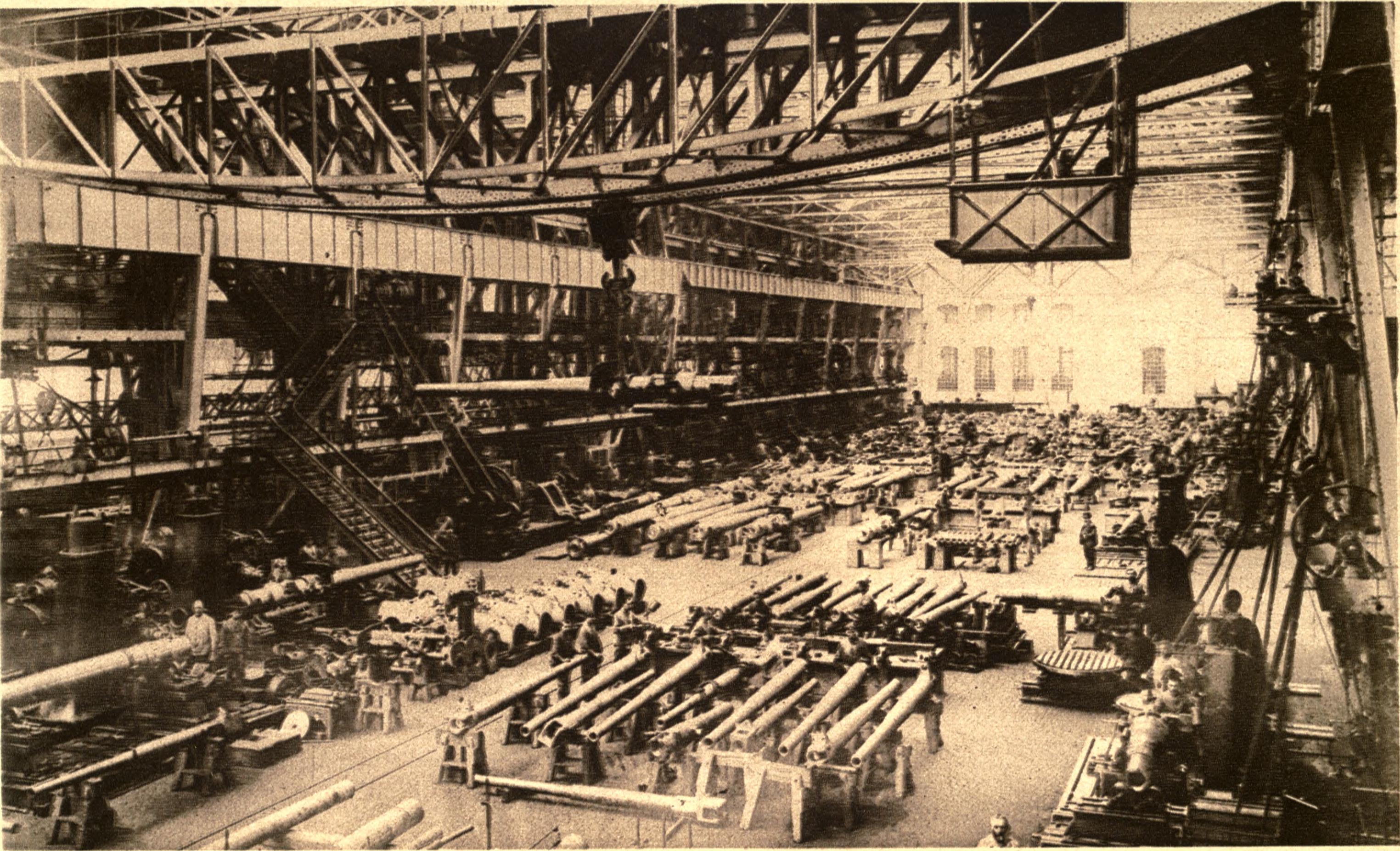|
Therese Krupp
Therese Krupp (1790–1850) was a German industrialist.Antonius Lux (Hrsg.): Große Frauen der Weltgeschichte. Tausend Biographien in Wort und Bild. Sebastian Lux Verlag, München 1963 She was married to Friedrich Krupp and took over the Krupp company after his death in 1826. References {{DEFAULTSORT:Krupp, Therese 1790 births 1850 deaths 19th-century German businesswomen 19th-century German businesspeople Businesspeople from the Kingdom of Prussia German industrialists People of the Industrial Revolution Therese Therese or Thérèse is a variant of the feminine given name Teresa. It may refer to: Persons Therese *Duchess Therese of Mecklenburg-Strelitz (1773–1839), member of the House of Mecklenburg-Strelitz and a Duchess of Mecklenburg *Therese of Br ... Businesspeople from Essen 19th-century industrialists ... [...More Info...] [...Related Items...] OR: [Wikipedia] [Google] [Baidu] |
Friedrich Krupp
Friedrich Carl Krupp (17 July 1787 – Essen, 8 October 1826) was a German steel manufacturer and founder of the Krupp family commercial empire that is now subsumed into ThyssenKrupp AG. Biography After the death of his father, he was brought up by his grandmother Helene Amalie Krupp, who had, in 1800, purchased the Sterkrade Works. Here Friedrich endeavored to make cast steel, the secret of which was carefully guarded in England England is a Countries of the United Kingdom, country that is part of the United Kingdom. It is located on the island of Great Britain, of which it covers about 62%, and List of islands of England, more than 100 smaller adjacent islands. It .... With Gottlob Jacobs, an engineer, Krupp made his first experiments at the Sterkrade Works, and after the sale of the plant in 1808 continued his attempts independently at Essen. In 1810 he founded a small forging plant near Essen, and in 1815 formed a partnership with Friedrich Nicolai for the produ ... [...More Info...] [...Related Items...] OR: [Wikipedia] [Google] [Baidu] |
Krupp
Friedrich Krupp AG Hoesch-Krupp (formerly Fried. Krupp AG and Friedrich Krupp GmbH), trade name, trading as Krupp, was the largest company in Europe at the beginning of the 20th century as well as Germany's premier weapons manufacturer during both world war, world wars. It produced battleship, battleships, U-boats, tanks, howitzers, guns, utilities, and hundreds of other commodities. The company also produced steel used to build railroads in the United States and to cap the Chrysler Building. After the Nazi Germany, Nazis seized power in Germany, Krupp supported the regime and was one of many German businesses that profited from forced labour under German rule during World War II, slave labor during World War II. Upon the war's end, the head of the company, Alfried Krupp, was tried and convicted as a war criminal for employing prisoners of war, foreign civilians and concentration camp inmates under inhumane conditions in support of the Nazi war effort. Despite being senten ... [...More Info...] [...Related Items...] OR: [Wikipedia] [Google] [Baidu] |
1790 Births
Events January–March * January 8 – United States President George Washington gives the first State of the Union address, in New York City. * January 11 – The 11 minor states of the Austrian Netherlands, which took part in the Brabant Revolution at the end of 1789, sign a Treaty of Union, creating the United States of Belgium. * January 14 – U.S. Secretary of the Treasury Alexander Hamilton submits his proposed plan for payment of American debts, starting with $12,000,000 to pay the foreign debts of the confederation, followed by $40 million for domestic debts, and $21.5 million for the war debts of the states. The plan is narrowly approved 14-12 in the Senate, and 34-28 in the House.''Harper's Encyclopaedia of United States History from 458 A. D. to 1909'', ed. by Benson John Lossing and, Woodrow Wilson (Harper & Brothers, 1910) p169 * January 15 – Fletcher Christian & 8 mutineers aboard the ''Bounty'' land on Pitcairn. * January 26 – ... [...More Info...] [...Related Items...] OR: [Wikipedia] [Google] [Baidu] |
1850 Deaths
Events January–March * January 29 – Henry Clay introduces the Compromise of 1850 to the United States Congress. * January 31 – The University of Rochester is founded in Rochester, New York. * January – Sacramento floods. * February 28 – The University of Utah opens in Salt Lake City. * March 5 – The Britannia Bridge opens over the Menai Strait in Wales. * March 7 – United States Senator Daniel Webster gives his "Seventh of March" speech, in which he endorses the Compromise of 1850, in order to prevent a possible civil war. * March 16 – Nathaniel Hawthorne's historical novel '' The Scarlet Letter'' is published in Boston, Massachusetts. * March 19 – American Express is founded by Henry Wells and William Fargo. * March 31 – The paddle steamer , bound from Cork to London, is wrecked in the English Channel with the loss of all 250 on board. April–June * April 4 – Los Angeles is incorporated as a cit ... [...More Info...] [...Related Items...] OR: [Wikipedia] [Google] [Baidu] |
19th-century German Businesswomen
The 19th century began on 1 January 1801 (represented by the Roman numerals MDCCCI), and ended on 31 December 1900 (MCM). It was the 9th century of the 2nd millennium. It was characterized by vast social upheaval. Slavery was abolished in much of Europe and the Americas. The First Industrial Revolution, though it began in the late 18th century, expanded beyond its British homeland for the first time during the 19th century, particularly remaking the economies and societies of the Low Countries, France, the Rhineland, Northern Italy, and the Northeastern United States. A few decades later, the Second Industrial Revolution led to ever more massive urbanization and much higher levels of productivity, profit, and prosperity, a pattern that continued into the 20th century. The Catholic Church, in response to the growing influence and power of modernism, secularism and materialism, formed the First Vatican Council in the late 19th century to deal with such problems and confirm cer ... [...More Info...] [...Related Items...] OR: [Wikipedia] [Google] [Baidu] |
Businesspeople From The Kingdom Of Prussia
A businessperson, also referred to as a businessman or businesswoman, is an individual who has founded, owns, or holds shares in (including as an angel investor) a private-sector company. A businessperson undertakes activities (commercial or industrial) to generate cash flow, sales, and revenue by using a combination of human, financial, intellectual, and physical capital to fuel economic development and growth. History Medieval period: Rise of the merchant class Merchants emerged as a social class in medieval Italy. Between 1300 and 1500, modern accounting, the bill of exchange, and limited liability were invented, and thus, the world saw "the first true bankers", who were certainly businesspeople. Around the same time, Europe saw the " emergence of rich merchants." This "rise of the merchant class" came as Europe "needed a middleman" for the first time, and these "burghers" or "bourgeois" were the people who played this role. Renaissance to Enlightenment: Rise of t ... [...More Info...] [...Related Items...] OR: [Wikipedia] [Google] [Baidu] |
German Industrialists
German(s) may refer to: * Germany, the country of the Germans and German things **Germania (Roman era) * Germans, citizens of Germany, people of German ancestry, or native speakers of the German language ** For citizenship in Germany, see also German nationality law **Germanic peoples (Roman era) * German diaspora * German language * German cuisine, traditional foods of Germany People * German (given name) * German (surname) * Germán, a Spanish name Places * German (parish), Isle of Man * German, Albania, or Gërmej * German, Bulgaria * German, Iran * German, North Macedonia * German, New York, U.S. * Agios Germanos, Greece Other uses * German (mythology), a South Slavic mythological being * Germans (band), a Canadian rock band * "German" (song), a 2019 song by No Money Enterprise * ''The German'', a 2008 short film * "The Germans", an episode of ''Fawlty Towers'' * ''The German'', a nickname for Congolese rebel André Kisase Ngandu See also * Germanic (di ... [...More Info...] [...Related Items...] OR: [Wikipedia] [Google] [Baidu] |
People Of The Industrial Revolution
The term "the people" refers to the public or common mass of people of a polity. As such it is a concept of human rights law, international law as well as constitutional law, particularly used for claims of popular sovereignty. In contrast, a people is any plurality of persons considered as a whole. Used in politics and law, the term "a people" refers to the collective or community of an ethnic group or nation. Concepts Legal Chapter One, Article One of the Charter of the United Nations states that "peoples" have the right to self-determination. Though the mere status as peoples and the right to self-determination, as for example in the case of Indigenous peoples (''peoples'', as in all groups of indigenous people, not merely all indigenous persons as in ''indigenous people''), does not automatically provide for independent sovereignty and therefore secession. Indeed, judge Ivor Jennings identified the inherent problems in the right of "peoples" to self-determination, as i ... [...More Info...] [...Related Items...] OR: [Wikipedia] [Google] [Baidu] |
Krupp Family
The Krupp family is a prominent 400-year-old German dynasty from Essen, noted for its production of steel, artillery, ammunition and other armaments. The dynasty began in 1587 when trader Arndt Krupp moved to Essen and joined the merchants' guild. He bought and sold real estate, and became one of the city's richest men. His descendants produced small guns during the Thirty Years' War and eventually acquired fulling mills, coal mines and an Finery forge, iron forge. During the Napoleonic Wars, Friedrich Krupp founded the ''Gusstahlfabrik'' (cast steel works) and started Smelting, smelted steel production in 1816. This led to the company becoming a major industrial power and laid the foundation for the steel empire that would come to dominate the world for nearly a century under his son Alfred Krupp, Alfred. The Krupp family business became the arms manufacturer for the Kingdom of Prussia in 1859, and later the German Empire. Early history The Krupp family first appeared in the h ... [...More Info...] [...Related Items...] OR: [Wikipedia] [Google] [Baidu] |
Businesspeople From Essen
A businessperson, also referred to as a businessman or businesswoman, is an individual who has founded, owns, or holds shares in (including as an angel investor) a private-sector company. A businessperson undertakes activities (commercial or industrial) to generate cash flow, sales, and revenue by using a combination of human, financial, intellectual, and physical capital to fuel economic development and growth. History Medieval period: Rise of the merchant class Merchants emerged as a social class in medieval Italy. Between 1300 and 1500, modern accounting, the bill of exchange, and limited liability were invented, and thus, the world saw "the first true bankers", who were certainly businesspeople. Around the same time, Europe saw the " emergence of rich merchants." This "rise of the merchant class" came as Europe "needed a middleman" for the first time, and these "burghers" or "bourgeois" were the people who played this role. Renaissance to Enlightenment: Rise of t ... [...More Info...] [...Related Items...] OR: [Wikipedia] [Google] [Baidu] |






